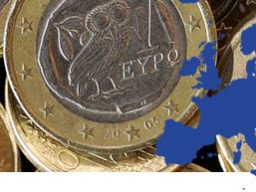Mircea Vasilescu: What is the relationship between the two terms in the title of this debate: economy and ethics?
Daniel Daianu: It is a very timely and intriguing linkage. When I was a member of the European Parliament I had a hard time trying to start a debate about the ethical dimension of the economy, an issue that has been hovering over us as the financial crisis enfolded and turned into an economic crisis. There is a line of thought in economic theory that says that, ultimately, economic activity is separate from values. It says that we all belong to the species homo economicus and are driven primarily by profit motives. There are economists that question this description of human behaviour, but the prevailing philosophy during the last two or three decades – a philosophy that has had a major influence on policy making – has seen markets as rational and individuals as seeking to maximize profit. Furthermore, it has proclaimed that this maximizing behaviour also increases the welfare of the community.
The financial crisis has dealt a heavy blow to this philosophy. What we are witnessing today is the failure, le fracas, of the paradigm of profit maximization in a very resounding fashion. Unfortunately, this failure is not simply an intellectual exercise. It is the failure of an entire model of the social embeddedness of economy.
It is somewhat ironic that Adam Smith, who is often described as the father of economics, is not only the author of The Wealth of Nations but also of The Theory of Moral Sentiments. Adam Smith was an intellectual who was convinced that moral values do have a role to play. Max Weber was another one who stressed this, or more recently Kenneth Arrow, who used to say that moral values such as trust, honesty, transparency and solidarity help the economic machinery to function better.
In my view, this crisis bears evidence to the regrettable loss of a moral compass in the business milieu. It is with dismay that I observe the lack of responsiveness of many persons at the top of the business world. Why don’t they get it? People in the US and in Europe have recently posed this question to the directors of the companies. How will you assume responsibility for what has happened? And there was simply no response! I was baffled when I heard one of them speaking about his work as “the work of God”. The sky is falling on our heads and he speaks of himself in terms of divinity. This shows the total divorce of these people from reality.
Europe and the US are now entering an age of significantly diminished growth prospects. The previous period, the time before the crisis, has been called the great moderation period, characterized by low inflation and reasonable growth. People thought that they had found a new paradigm, a new golden age. Today, we are entering a very different age. At a time when there is so much economic distress and duress, in the western world in particular, to fail to accept that there is an ethical dimension to economics, that you have a moral responsibility for what you are doing on a systematic basis, is dismaying to say the least. Unless we recover the moral compass; unless more and more people rediscover the sentiments of shame and guilt, which are basic ingredients in the social glue that keeps society together, we will face even bigger problems in the years to come.
Robert Misik: Many people would say that ethics has nothing to do with business. If you want to make money you should not care about ethics; if you try to be a nice guy in business you will soon find yourself being a bankrupt nice guy. That is an almost instinctive way to think about economy and ethics.
However, all economic theories and systems are based on some sort of ethical ideas. That also applies to those economic paradigms that seem to be amoral. Take the neoliberal paradigm for example. It says, as you pointed out, that the homo economicus strives and should strive to maximize his or her own interests. But that is not the only basis for this paradigm. It also claims that in a society where all these homines economicus seek to maximize their own profit, this activity, almost miraculously, transforms into a public good. Most people would say that trying to maximize your own material interests is not really a virtue, it is rather a vice. But the ethics of neoliberalism say that private vices transform into public virtues.
This is about ethics. Imagine that the neoliberals were right, that the story we have been told during the last three decades is an accurate description of how societies work. It would be wonderful! It would mean that we wouldn’t have to be good guys, that we wouldn’t have to be nice. On the contrary, if we were nice to other people it would be bad for them. Only if we were bad to other people would it good for them; it would make our societies more prosperous, it would make us all richer and everyone would get something good out of it. If we tried it the other way around, we might be nicer guys but we would all be poorer. And the poor people wouldn’t have anything from that either: even if they weren’t so poor in relative terms – compared to the rich – they would certainly be poorer in absolute terms, since we would all be poorer.
However there might actually be good reasons to separate moral sentiments from economy. In economics things have to work, that is the bottom line.
Let’s presume that our moral sentiments suggest that a great amount of inequality – when it comes to social and material goods, to opportunities – is morally bad and that equality is morally good. This would be one thing. But if it was the case that societies with huge inequality worked better economically, then it would not be an economically good idea to strive for a more equal society.
But economic history actually shows that societies that are more equal, that have a fair distribution of wealth, that give everyone the same chance to make something out of their lives, are usually more prosperous; that they work better both economically and socially.
DD: But there is an unethical dimension in the current crisis: cornering of the market, fraudulent behaviour, cheating. It is not a recent vintage, think about the fall of Enron, the fall of WorldCom, the Parmalat case… These are not isolated cases. It appears, as the French would say, ils ont perdu les pédales! It is not markets per se that that are devoid of morality. The people can instil a lack of morality in the functioning of markets – this is the problem! You can have capitalism with a very ugly face but also a relatively benign, acceptable capitalism, such as the one that developed in Europe after the Second World War – a benign, decent and civilized capitalism. It is hard to tell people who have lived in a command economy that markets are intrinsically bad.
Markets also have a teleological dimension; markets are good because it is much more likely that markets will foster democracy than any other system to allocate resources. On this basis we can not only conceive of a better society but also create one through policy-making. For me, free markets are essential to economic freedom, but free markets and economic liberty are not the same as deregulated markets. It is the deregulation of the financial system that has brought the economic machinery to the brink of catastrophe. And that could, in the end, have destroyed democracy as well. In the last couple of years, policy making has been totally divorced from the ABC of prudent behaviour, printing money or running very large budget deficits. This is the issue: how do we correct market failures, just as we tried to correct one of the major failures in human history, namely the command economy? What do we do about politics and how will we rediscover the moral compass?
RM: Yes, the question is not whether or not we should have market economies. There are different forms of market economies, historically as well as now. Both good and bad capitalism are possible. Just compare capitalist market economies such as the Scandinavian countries with capitalism in the US, Portugal or in the UK, the most unequal of the developed capitalist countries.
So how can we achieve this moral or better capitalism? Or to put it the other way around, what made post-war capitalism, which was more stable, regulated and fair, turn into the pre-crisis capitalism of the early twenty-first century?
There have been two decisive developments here. First was deregulation, which means that what we need now is re-regulation. But it was not only about deregulation. We can also see a change of sentiments; the sense of what could be regarded as legitimate and what could not simply changed. In the 1970s, the average CEO in Germany earned twenty times as much as the average worker. It was not forbidden for him to earn 200 times as much as the workers, but he didn’t, because it was generally seen as immoral. Watching old documentaries about the leading German CEOs in the 1970s, you see that the way they lived didn’t differ that much from the way other people lived. Of course, their houses were somewhat fancier, but the difference in lifestyle was not as huge as it is today, when you can actually say that they live on a different planet.
In recent years, what is considered not only legitimate but also the final proof of success would, twenty or thirty years ago, have been deemed illegitimate and immoral. So it is not only about re-regulation, it is also about achieving a shift in the public “mood”.
DD: What you are highlighting is the nexus between the culture of a society – not in the sense of how much we know, but how we behave to each other – and how much restraint people put on their greed.
It could be possible for us to experience increasing social inequality but still to cohabitate, to be more willing to accept growing differences when there is a steady growth. But an increase in fraudulent behaviour will lead to social unrest. People get outraged when they feel that they have been cheated on, when they feel that there is a difference between what is being preached and what is practised.
This is something that we should fear. It is not only about the inability of the political class to come up with a common strategy on how to get out of this crisis. My fear is that the cleavage between the business world and people at large is simply too great. If we do not rediscover, in one way or the other, the moral compass, it will get rough.
What we are seeing is a major crisis, not of capitalism but of a certain model. At the same time we have a social problem, visible in the erosion of the middle class – and the middle class is the mainstay of democracy. And on top of it all we have the impact of climate change – which is not understood by a sufficient number of people, meaning that they are not ready to accept the costs of dealing with climate change – plus the stiff competition coming from huge low-wage countries such as China, India and possibly also Brazil. For the first time in modern history, the pre-eminence of the western world seems to be under threat.
If you cannot give to people what they want and need, the least you should do is to show them respect. You should try to empower people by redeeming what seems to have been lost. It is like waging a war and not having enough to give to all of your soldiers. What you can do is to instil confidence in them. And you can only do that if you are a trustworthy person.
Carl Henrik Fredriksson: Lets return to the starting point, to the origins of the crisis. There are two common explanations. The first says that the crisis originated in certain economic circles and institutions in the US and the mismanagement that characterized them. That was the origin and it spread from there. And this mismanagement was the result of certain vices, greed for example; unethical behaviour as you called it. This explanation is very popular today, for example in the debates on new taxes on banks that are now being considered or even implemented in several countries around Europe. The representatives of the European banks then say that you are punishing the wrong guys; we were not the ones making the mistakes, it was the Americans.
The second explanation says that there is a systemic error built into capitalism and this systemic error made the crisis inevitable. This is an argument coming mainly from the Left.
I would suggest that there is a third possible explanatory model somewhere in-between. This could be formulated in ethical terms but also in terms of mentality. What we are dealing with is a mentality that is not only visible in certain circles in the business world – in the US or elsewhere – but which exists within whole societies, based on the premise “enjoy now, pay later”. This consumerist maxim is what allows for the step from the old capitalist principle of “creating value” to the trade with virtual value, with derivates and the like.
Is it not this type of mentality rather than some type of ethics that makes this step possible?
DD: I was in the European Parliament in 2008 and co-organized the first seminar on the crisis that took place there. At that time, top European politicians, heads of state, leading members of the European Commission, were all saying that the European economies are robust, they will not succumb to the crisis, we are not exposed to these toxic products, the subprime crisis is an American crisis par excellence. We have a different system, they said. Already then I found that ridiculous. In an age of global markets, it is simply foolish to think that the leading European banks will not practice what the leading US banks practice. Of course, one has to distinguish between different European banking groups. But some of them have been heavily exposed to these toxic products – because they created them. They sold toxic products and some of them cheated on their investors, knowing that what they sold was rubbish.
This crisis is not a product of the US. It is the product of a paradigm that has won the battle of ideas in the last three decades. After the Second World War, Keynesianism – “state activism” – brought prosperity to Europe. The European Union secured peace in Europe. But mistakes were also made in the name of “state activism”. In the wake of technological change and the fall of communism came neoliberalism and deregulation. Unfortunately, the pendulum swung too far to the other side.
The state was captured; public policy was captured. It is now clear that what we usually associate with failed states, with poor countries in Latin America, Africa and Asia, has been happening, on a massive scale, in the western world. Bankers have more or less been dictating the terms of the deregulation of the finance sector.
So, what we are seeing is the failure of a paradigm and of a policy – in Europe as well as in the US. For years the so-called “continental model” was put under pressure; people kept saying that it no longer worked and that the only alternative is to adopt the neoliberal model. We all forgot about the Scandinavian model, which shows that you can actually combine efficiency with equality.
These are the roots of the crisis. What we have to do now is not only regulate the financial system, but we probably also have to reduce it. In the US, the profits of the financial industry make up almost 40 per cent of the total corporate profit. Its contribution to GDP, however, is only 12 per cent.
What is crucial though, is that the people administrating this failed paradigm now face up to their responsibility and accept that things have to change. But they keep taking bonuses. It’s absolutely unacceptable. Do you think it’s acceptable?
CHF: No, of course it’s not acceptable. I’m not sure though, if ethics is the key issue.
RM: But it does have an ethical dimension. Is there a systemic error in the “buy now, pay later” paradigm? Well, that’s a difficult question. Common sense tells us that debt is bad and will lead to catastrophe. But in fact, debt is what has made us rich in the last 200 years or so. For the most part of history, wealth doubled every 600 to 1000 years. Since roughly 300 years ago, that figure is every 40 or 60 years. What brought this change? It was the development of business credit that made it possible to invest in the future and in future returns.
Debt-driven economies is what makes us rich. That is certainly contrary to what common sense tells us.
As for the difference between the banking systems of the US and Europe: some European bankers might actually see themselves as victims of the dictate of the global market! In a world where financial institutions have to have equity returns of 20 to 25 per cent, their conservative model that gives 9 per cent is simply not possible anymore. To pursue that would mean that you are a bad banker. They have to some extent been forced to apply the “creative” models developed by US and UK banks.
This was also one of the reasons why Austrian banks became so engaged in eastern Europe, in Romania, Hungary and Ukraine. It was not possible to make enough profit in Austria anymore, where market shares were relatively small and personnel costs high. In eastern Europe, on the other hand, there were business opportunities that would make it possible for them to meet the dictate of 25 per cent return on investment. It meant taking huge risks; lending 300 billion euros to eastern European clients, which is roughly 60 per cent of the Austrian GDP. But to some extent they were forced to take this risk.
DD: Banking is a peculiar industry. A bank is not like a bakery. Banks depend on trust. If there is something wrong with one bank and all the rest are OK, this can still lead to a collapse of the whole banking system in that region. Banking is different. Banks are supposed to be cautious, for example about whom to lend money to. But look at what has been happening. Banks that are supposed to be prudent have got involved in trading, sometimes in casino-type trading.
We have to ask ourselves why an industry that is so essential to the functioning of the whole economy has been allowed to go crazy. On one hand, I put the blame on an economic paradigm that has underestimated the systemic risks. On the other hand, many people knew that there was something wrong but they still engaged in these activities. They knew that they were doing things that would damage the system, but they earned a lot of money doing it. Therefore it is also about honesty. As long as the party was going on, they accepted it.
Who is to blame then? Not only regulators and supervisors, those who should be concerned with stakeholder value and not only shareholder value. Ethics are taught at business schools and we know quite a lot about greed, which is part of human nature. But when greed comes to characterize a whole system, something has gone terribly wrong. And we have to deal with it. It is not enough to say that these sorts of panics and manias are part of capitalism and that we’ve seen a lot of those in the past. We have to deal with it. And we do have the instruments to do that, just as people learned something after the Great Depression.
RM: Yes, we have experienced panics in the past, but not between 1945 and 1987. The reason for that was not that people were more rational or less greedy than before or after, but that things were organized differently.
And yes again, banking is a special business, not only because it is built on trust. You actually need banks in order to have a functioning economy. If all bakeries went bankrupt, we might have to eat spaghetti for breakfast for a while, but we would survive. If all banks went bankrupt – and we were very close to that happening – then the whole economy would collapse. Banks are system relevant. Bakeries are not. Not even media are system relevant in this sense, even if many media representatives would like to think so.
The second difference is a result of this. Bankers know that banks are system relevant. They know that they can take huge risks, risks that no normal entrepreneur could or would take. A normal businessperson knows that taking too great risks means that they could go under. The major banks know that, if worst comes to worst, the state will buy them out. Of course this influences the behaviour of bankers! Their risk models say that there is a certain risk of an apocalyptic scenario, but even if that actually came about, they would not be the ones that have to pay the price.
There are two possible ways to handle this. The first is to deregulate and to ensure that there is this state guarantee. That’s the worst alternative, as I see it. The second possibility would be very strict regulations that mean that banks cannot decide themselves on what risks they take. The latter was actually applied in the post-war period in the US. Everyone seems to have forgotten about this, but the US business banks did not even have the freedom to decide on the interest on saving accounts. The state set the interest rates. If you tell this story today, people look at you and think that that is pure communism – but no, that was the way things were organized in the main capitalist economy, the US, up until the 1980s.
MV: We are talking about capitalism, but, to bring the East-West aspect into the discussion, in the former communist countries there was no capitalism, there were no banks. Now we are part of the western world, but we are, from an economic point of view, newcomers.
DD: The big divide is not between East and West but runs within the Monetary Union. The new EU member states and even some of the candidate countries are more robust economically and socially than some of the current members of the Monetary Union. The big debate in the European Union is no longer about what to do with the new member states but about the dividing line between the relatively stable economies north of the Alps and the southern members of the Eurozone. This is now overshadowing the discussion that we had in autumn 2008, when there was a feeling in Warsaw, Prague, Bucharest and elsewhere that there was a lack of help and understanding from the western side as the crisis struck.
CHF: From the point of the new member states, is it a good thing that the focus has moved from here to Portugal, Italy, Greece and Spain? The North-South divide is indeed a very worrying development that seems to threaten the European integration project as a whole. But does it not also mean that the East is again left out of the equation?
DD: There is bad news and there is good news. The bad news is that the mechanisms within the Monetary Union are not doing what they are supposed to do and that the dynamics that are now in play might, as you say, lead to a complete breakdown, not only of the Monetary Union, but of the European Union as such.
The good news is that many of the economies in eastern Europe are perfectly compatible with the core of the Monetary Union, or at least much more compatible than some of the countries in the South. The Czech Republic for example, which ironically does not want to get into the Eurozone. Or Hungary, which, if you disregard its overwhelming public debt, is comparable to Germany or Austria when it comes to trade and industrial networks. The Baltic countries are worse off.
The new member states do not make up a homogenous group, just as the Eurozone is not homogenous.
RM: From the point of the view of the West, I cannot see any East-West divide. Most people have already lost interest in eastern Europe. Since 1989, central and eastern Europe has become more and more normal – that is a bit more like us – and that also means that it has become boring. People look more to the West than to the East, as they have always done.
The first thing people did when the financial crisis hit was not to look to the East to find out what was going on there. When they did look, they realized that the western banks stood to lose a lot of money and there was some kind of panic. However, I don’t think that this opened up a “new-old East-West divide” or that the East was again considered to be “unruly and unpredictable”. In other financial crises, the societies that suffered the most were those who were blamed for the crises: the Latin Americans were blamed for the Latin American crisis because their economies were not sound; the Asians were blamed for the Asian crisis because of their crony capitalism, and so on. But no one says that the eastern Europeans are to blame for their problems – instead Wall Street is. So there is no divide in this sense.
DD: You talked earlier about mentality. A society must pull itself together in order not to lose the economic battle. This is not only an economic issue, it’s also a cultural issue! We have mentioned the Scandinavian model. If you take the benchmarks of the Lisbon agenda you will see that, in most basic areas, the Scandinavian countries have performed the best in the EU. But in these countries there were also points in history when thorough reforms were necessary – and there were constellations of politicians and intellectual elites in these societies that realized this. People also realized that reforms were necessary in order to cope with a huge pressure from the outside. And they did it, the Scandinavians! They went through painful reforms, but they made it! Will this happen in Greece? In Portugal? In Italy? In Spain? In the new member states we probably have more of a routine when it comes to these kinds of reforms; we have gone through some painful ones already. But will populations that over decades have got used to a hedonistic lifestyle – that are concerned with long vacations and salary raises – be able to do what the Scandinavians did? This is also about the culture of a society.
RM: I have to defend Spain here! Spain had a sound economy and sound economic policies. They suffered from the real estate bubble but this is something very different to what has happened in Greece; it is different than running huge budget deficits for years and hiding this by faking the figures. So, you can actually, like Spain, run into difficulty even if, as government and as society, you do everything right.
CHF: If you turn this into a moral issue, Max Weber seems to be a more suitable source than John Kenneth Galbraith or Marx. You would then – as many do in the debate about the North-South divide – talk about a Protestant ethics that is all about abstaining, about working hard and saving for the future. But if one does that, one also runs the risk of not only culturalizing the issue, but also individualizing a problem that instead calls for political solutions. Self-regulation is a moral category, while regulation is a political one. Politics must of course be based in ethics, but politics is not ethics.
A final question: after the crisis, what will be the name of the economic system that we will be living in? “Regulated capitalism”? “Social market economy”? Or do you have more inventive suggestions?
RM: Social market economy. But that is probably a bit utopian, at least on a global scale.
DD: No, a global social market economy is not very realistic. What we will see is an intense search for a new model in Europe, a search that started with Anthony Giddens a decade ago. I see people trying to emulate the Scandinavian model, but that will be very difficult, not least since that model has cultural underpinnings. It will not be easy to emulate it all over Europe. At the same time, I think that in the decades to come even liberal democracies will develop traits of Kriegswirtschaftslogik, because they need to be able to respond instantly to all kinds of menaces, such as climate change, epidemics and other threats. Last but not least, there is the threat of competition. Whatever we do, however much we want to preserve the social dimension and the values that define the European model, we will face very stiff competition from Asia, especially China. That means that we have to introduce more flexibility into our system – “flexicurity” will not be enough. I’m not very optimistic in this regard. I suspect that we are entering an age of high instability and that we will have to limit our expectations.
This debate took place at the Romanian Cultural Institute in Bucharest on 31 March 2010. It was organized in cooperation with Dilema veche and the Romanian Cultural Institute, with the support of the ERSTE Foundation.







